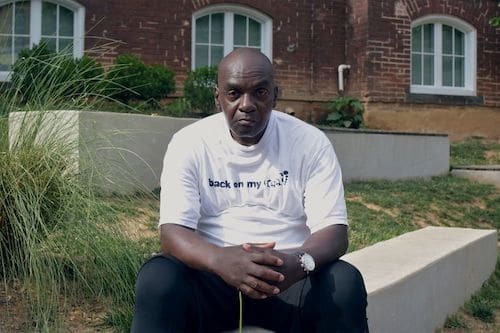A local realtor association and a nonprofit recently cemented a three-year partnership to support low-income residents in the D.C. metro region seeking to own their own homes.
Joseph Leitmann-Santa Cruz, CEO and executive director of the nonprofit, Capital Area Asset Builders (CAAB), said the primary vision for the partnership is to make homeownership accessible to members of low-income communities of color by sharing information and resources. CAAB has disseminated information on homeownership and access to capital for almost 25 years, helping more than 900 people buy their first homes, according to its website. Leitmann-Santa Cruz said the nonprofit is committed to intentionally minimizing the racial wealth gap in D.C.
“We’ve long been concerned about housing affordability in the area,” he said. “It’s part of the intentionality on our part to ensure that Black and brown individuals and families have access to financial stability so they can eventually achieve financial prosperity and leave a legacy for the next generation.”
[Read more: In 2018, Capital Area Asset Builders helped launch a pilot program to house DC residents while they find work]
According to a 2018 D.C. Fiscal Policy Institute report, racially-biased policies and practices in hiring, homeownership, and education have generated a significant wealth imbalance in the District. The report showed that the median household income for Black D.C. residents — $38,000 in 2016 — was less than one-third of the median household income for white residents during that period, $126,000. Similarly, the median income for Latino families at the time, $65,000, was half the median white income.
 Wealth and income inequality is also reflected in disproportionate homeownership rates. A 2018 Urban Institute report found that about 50% of Black households own their homes, compared to more than 70% of white households.
Wealth and income inequality is also reflected in disproportionate homeownership rates. A 2018 Urban Institute report found that about 50% of Black households own their homes, compared to more than 70% of white households.
Jan Brito, president of the Greater Capital Area Association of Realtors (GCAAR), which promotes real estate professionals in D.C. and Montgomery County, said that homeownership is one of the most impactful ways to build wealth and end generational poverty.
“If you buy a house and stay in it long enough, you’re going to build equity, which is important to be able to take care of basic needs. It can also pay for college education or medical needs and leave a legacy for heirs. Not to mention the sense of pride it can bring to people’s lives,” Brito said.
For five consecutive nights in June, GCAAR and CAAB hosted a series of one-hour online workshops on homeownership. Three hundred and seventeen people attended, according to a GCAAR factsheet. Each class touched on a different subject, including budgeting, understanding your financial rights, and taking charge of your credit.
The series will be repeated again next month, the week of Oct. 18 – 22.
Brito emphasized that only the last of the five classes presents regionally specific information. He believes the workshops will be enlightening for participants, regardless of region. The June series focused on D.C. in the last session. The regional class in the October curriculum will focus on financing options in Montgomery County.
A joint press release from the organizations quotes Ronald Armstrong, one of the 317 who attended the workshops in June, as saying the information was “very helpful” to get him on track to save more, navigate the real estate market, and set reasonable goals. Armstrong, 58, is a peer specialist with the nonprofit HIPS, previously overcame homelessness in the D.C., and is seeking to buy a home with his wife.
According to Leitmann-Santa Cruz, the partnership between his nonprofit and the realtors’ association started at the end of Spring 2020 as the pandemic was worsening and GCAAR wanted to launch an emergency relief fund for its members facing financial hardship due to COVID. CAAAB was selected to review applications and manage that fund. The partnership evolved from there.
“You always hear that phrase ‘The dream of homeownership,’” Brito said. Even though homeownership is one of the most impactful ways of building wealth, she said, “for so many people it really is still a dream.”
Further details about workshop registration can be found on CAAB’s website or are available by emailing [email protected]. The full five-day curriculum is Lesson 1: Understanding Your Financial Relationship, Lesson 2: The Art of Budgeting, Lesson 3: Take Charge of Your Credit, Lesson 4: Understanding Your Financial Rights, and Lesson 5: Pay Yourself First.








